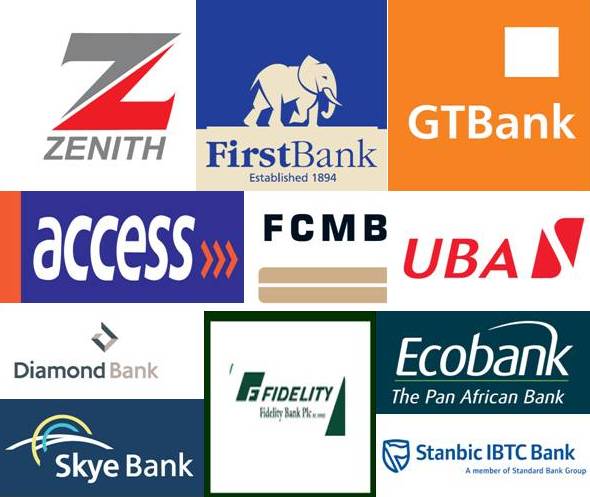The holding company (HoldCo) structure adopted by First Bank of Nigeria Limited and large number of African subsidiaries owned by the United Bank for Africa Plc (UBA) have been identified as likely factors that made their major competitors -Guaranty Trust Bank Plc (GTBank) and Zenith Bank Plc to record higher earnings in 2012.
While First Bank had adopted a HoldCo structure whereby a non-operating company holds the investments in the bank and each non-core banking operations as subsidiaries, in line with the Central Bank of Nigeria (CBN) new banking model, UBA got approval to operate as a standalone commercial bank. Therefore, it divested from its non-core banking businesses. But, UBA’s 18 African subsidiaries are still under the commercial bank.
However, GTBank and Zenith Bank are not operating under the HoldCo arrangement and have very fewer subsidiaries outside Nigeria. Specifically, while GTBank has a total of five branches outside the country, Zenith Bank has only three.
For instance, UBA’s profit before tax stood at N52.01 billion as at December 31, 2012, compared with a loss of N26.6 billion in 2011. Similarly, UBA recorded a profit after tax in 2012 of N54.77 billion as against a loss of N6.80billion the previous year.
Also, First Bank Nigeria Limited’s 2012 financial reports also showed that its profit before tax increased to N86.177 billion, from the N39.166 billion achieved in 2011. Also, the bank’s profit after tax stood at N75.097 billion as at December 2012, as against the N18.637 billion recorded in 2011.
But GTBank’s profit before tax jumped to N103 billion as at December 2012 from N62.080 billion in 2011, its profit after tax also increased to N87.296 billion in 2012, from N51.742 billion. Similarly, Zenith Bank recorded profit before tax of N102.100 billion in 2012, from N67.440 billion in 2011 as well as profit after tax of N100.68 billion in 2012.
The Renaissance Capital (RenCap), a Lagos-based financial advisory and research firm, in its latest report titled: “Battle of the Banking Giants – Who Delivered Value?” also showed that although overall, all banks showed improvement in their operational performance in 2012 as against their 2011 full year reports, their underlying earnings drivers varied significantly. It revealed that GTBank had the most favourable mix and hence delivered the highest returns on both a return on assets (RoA) and return on equity (RoE) basis.
“Over the past nine years, GTBank has consistently delivered higher average gross yields on the book at 10.7 per cent versus First Bank at 9.8 per cent and Zenith Bank at 9.7 per cent. We see no immediate reason why this would change – given its market share.
“Compared with full year 2011, GTBank saw the least deterioration with funding costs up 40 basis points versus First Bank up 70 basis points and Zenith Bank up 130 basis points. We are somewhat confused by the greater deterioration in Zenith’s margins given that there was hardly any change in the mix of the deposit book – we would have expected the bank to have fared better,” RenCap explained.
The Chief Financial Officer, UBA, Mr. Ugochukwu Nwaghodoh, recently disclosed plans by the bank to increase the level of income from its African subsidiaries to 40 percent in the next two to three years from 20 per cent last year.
According to him, the bank might open a subsidiary in Angola this year if granted approval by regulators in the country.
“Otherwise we don’t plan any other offshore expansion in the short to medium term,” he had said.
[ThisDay]




 Premier League
Premier League